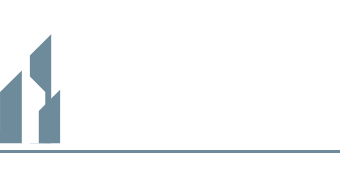By Chris Gardner, President, Independent Contractors and Businesses Association
This op-ed was first published in The Vancouver Sun on Oct. 11, 2017.
It’s another week in Canada when businesses and investors are taking their ideas, their people, and their capital elsewhere.
This week, it was the announcement that TransCanada has scrapped its $15.7 billion Energy East pipeline proposal, after the National Energy Board (NEB) changed the regulatory review process and after it was clear there was no way around the opposition from local and provincial politicians in Quebec.
In a decade, we have gone from a country on the verge of becoming a global energy superpower to a place where, because we have so little access to international markets for our oil, we have to sell it at a discount to the United States. This is a $48 million daily gift to our neighbours, who export their own oil at the full international market price.
Sadly, this is self-inflicted. Canada is now a country where it is simply becoming too difficult to build big infrastructure projects.
Earlier this summer, Desjardins announced it will refuse to finance Canadian energy projects. The oil and gas sector directly employs more than 425,000 Canadians and are the largest source of private sector investment in the country. It’s hard to imagine a leading national financial institution in China, Germany, Singapore or the U.S. abandoning a major sector of their economy – it would be an unacceptable national betrayal. Yet, this announcement conjured a collective yawn from most Canadians as though it is routine and without consequences for our national economy.
As federal and provincial governments across Canada have made regulatory approval and permitting process increasingly complicated, time-consuming and expensive, one could be forgiven for thinking they are doing their level best to shut down our energy economy. Well, their plan is working. Consider that TransCanada just spent $1 billion on due diligence for Energy East and has absolutely nothing to show for it.
The energy sector in our country is slowly being hollowed out – talent, opportunity and family-supporting jobs are slipping away. Over the past three years, there has been an exodus of international investors from Canada’s oil and gas sector. The largest players in the world are leaving and are not coming back.
Too often in Canada, the rules change, the goal posts are moved, and companies seeking to invest billions of dollars, create jobs and provide opportunities for Canadians are unjustly vilified in the process.
In British Columbia, the Site C clean energy project – which has been under construction for two years – is now being forced to undergo yet another review. This, after years of independent reviews and government approvals upheld in no less than 14 court challenges.
Petronas threw in the towel on its $36 billion LNG project to export natural gas from B.C. to markets in Asia hungry for cleaner sources of energy than coal or oil.
And the new provincial government in B.C. launched a last-minute challenge to the $7.4 billion Trans Mountain Pipeline project, asking the court to overturn all the National Energy Board and federal cabinet approvals. This, after a decade of effort, a 29-month independent review by the NEB, and federal and provincial government approvals.
It’s easy to say it was never in the cards for Canada to become an energy super power and some do. But it does not help when every conceivable roadblock is placed in the path of companies that have the vision, capital and courage to try.
The past few weeks have been dominated by conversation over changes to the small business taxes. Shockingly, some say we have too many small businesses in Canada and that not enough of them grow into larger enterprises. That’s a matter of opinion, but surely the answer is not to penalize Canadians who want to start a new venture or who are managing small businesses that are the lifeblood of our economy and to label them tax cheats.
Unfortunately, we are losing sight of what it takes to attract investment, create opportunities and compete internationally. And, by this measure, Canada’s loss is the gain of its competitors – countries focused on fostering growth, attracting investment, and getting their natural resources to markets. The brash and bold character that built our great country is in danger of being read about only in the pages of history textbooks.
 In a Journal of Commerce piece today, ICBA president Chris Gardner made the case for the North American Free Trade Agreement:
In a Journal of Commerce piece today, ICBA president Chris Gardner made the case for the North American Free Trade Agreement:



